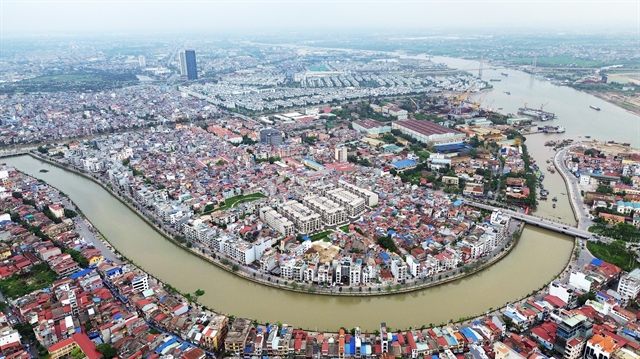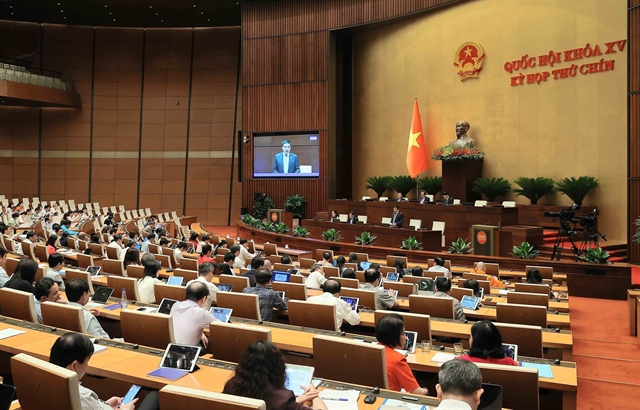Hải Phòng, Việt Nam's third-largest city, is expected to be a growth driver in the Red River Delta region and the national economic target in the next five years.

HÀ NỘI — Establishing a free trade zone in Hải Phòng City is one of a number of solutions proposed during the National Assembly’s session on Tuesday morning, looking at measures to boost the economic growth of Việt Nam’s third-largest city.
The legislation discussed specific policies and strategies to remove bottlenecks to Hải Phòng’s development, which is expected to be a growth driver in the Red River Delta region and the national economic target for the 2026-30 period.
Phan Văn Mãi, chairman of the NA Committee for Economic and Financial Affairs, said that a free trade zone would be necessary, given the current political and legal basis.
However, this would also be a major project that would not only have economic impacts but also concern national defence, security, as well as social safety and order, he noted.
Therefore, the pilot would require impact assessments on economic growth, budgets and social context of the city as well as the region.
Mãi underscored the need to adopt risk management and oversight mechanisms that ensure transparency and openness, while safeguarding financial safety, economic security, and public order. The responsibilities of the stakeholders involved in implementation must also be clearly defined.
The NA Committee for Economic and Financial Affairs also recommended reviewing the authority of the Hải Phòng Economic Zone Authority to implement a ‘single-window’ mechanism, in order to facilitate administrative procedures while ensuring execution capacity.
Alongside the pilot free trade zone, the NA also discussed other preferential policies for Hải Phòng, such as streamlining procedures related to investment, business activities, import-export procedures, immigration, temporary residence and work permits; as well as land and construction investment.
Other topics of discussion include optimising incentives for land and water surface rental and tax policies, and allowing the opening of foreign bank branches’ transaction offices within the free trade zone.

Hải Phòng City may also enjoy certain tax incentives for innovation and start-up activities, including a five-year exemption of corporate income tax or personal income tax for individuals and organisations who earn from contributing to startups located in the city.
The draft proposal assigns the city’s People’s Council the responsibility to define criteria, conditions and procedures to ensure these incentives are applied effectively.
The NA Committee for Economic and Financial Affairs also suggested extending the policy duration for corporate income tax incentives. For businesses subject to the global minimum tax, relevant tax obligations must still be fulfilled accordingly.
Additionally, further clarification is required for policies regarding foreign currency transactions, pricing and payments, since this is a new mechanism with significant implications for foreign exchange management and monetary security.
According to the draft proposal, Hải Phòng can also borrow funding through the issuance of local government bonds, loans from domestic financial institutions or other sources within the country, and from the Government’s foreign loans lent to the city.
The total outstanding debt must not exceed 120 per cent of the city’s budget revenues as allocated. The total annual borrowing and budget deficit will be determined by the NA in accordance with the State Budget Law.
Hải Phòng is also expected to be granted permission for land lease for logistics services and centres serving seaports, airports, and inland waterway ports, without conducting a land use rights auction or organising a bidding process to select investors for land-use projects. — VNS





